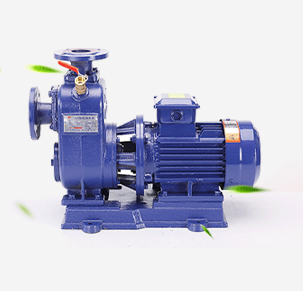TEL:
+86 13120555503
Icelandic
- Afrikaans
- Albanian
- Amharic
- Arabic
- Armenian
- Azerbaijani
- Basque
- Belarusian
- Bengali
- Bosnian
- Bulgarian
- Catalan
- Cebuano
- Corsican
- Croatian
- Czech
- Danish
- Dutch
- English
- Esperanto
- Estonian
- Finnish
- French
- Frisian
- Galician
- Georgian
- German
- Greek
- Gujarati
- Haitian Creole
- hausa
- hawaiian
- Hebrew
- Hindi
- Miao
- Hungarian
- Icelandic
- igbo
- Indonesian
- irish
- Italian
- Japanese
- Javanese
- Kannada
- kazakh
- Khmer
- Rwandese
- Korean
- Kurdish
- Kyrgyz
- Lao
- Latin
- Latvian
- Lithuanian
- Luxembourgish
- Macedonian
- Malgashi
- Malay
- Malayalam
- Maltese
- Maori
- Marathi
- Mongolian
- Myanmar
- Nepali
- Norwegian
- Norwegian
- Occitan
- Pashto
- Persian
- Polish
- Portuguese
- Punjabi
- Romanian
- Russian
- Samoan
- Scottish Gaelic
- Serbian
- Sesotho
- Shona
- Sindhi
- Sinhala
- Slovak
- Slovenian
- Somali
- Spanish
- Sundanese
- Swahili
- Swedish
- Tagalog
- Tajik
- Tamil
- Tatar
- Telugu
- Thai
- Turkish
- Turkmen
- Ukrainian
- Urdu
- Uighur
- Uzbek
- Vietnamese
- Welsh
- Bantu
- Yiddish
- Yoruba
- Zulu
Telephone: +86 13120555503
Email: frank@cypump.com
feb . 20, 2025 02:04 Back to list
sump pump for sewer line
Selecting the right sump pump for a sewer line can carry a crucial impact in averting potential water damage and maintaining the integrity of a property's entire drainage system. In situations where homes experience frequent flooding or where the landscape naturally directs water towards the foundation, equipping your home with a suitable sump pump is not just advisable but essential.
Material and design of the pump also play significant roles in effectiveness and longevity. Pumps constructed from durable materials such as stainless steel or cast iron are recommended due to their robustness and resistance to corrosion and wear. These materials ensure that the pump can withstand prolonged exposure to water and waste materials inherent in sewer systems. The installation process of a sump pump for sewer lines, while appearing straightforward, demands an understanding of the home’s plumbing architecture. Hiring a certified plumber to undertake this task can assure the system integrates seamlessly, minimizing potential mishaps. Additionally, professional insight can be invaluable in maintaining compliance with local building codes and regulations surrounding plumbing and electrical installations. Despite the mechanical nature of sump pumps, incorporating technology is not unheard of. Opt for models with features like battery backups and Wi-Fi connectivity, ensuring functionality even during power outages and remote monitoring for peace of mind. Such advancements highlight the importance of protecting one's home under various circumstances, reducing the burden of manual interventions. Sustainability and running costs are other considerations when choosing an ideal sump pump for sewer lines. Modern pumps that prioritize energy efficiency can significantly reduce electricity consumption, leading to lower monthly utility bills. Investing in an energy-efficient model not only benefits the environment but also entails substantial long-term savings. In conclusion, selecting the right sump pump for sewer lines involves a multifaceted approach encompassing reliable performance, appropriate power capacity, robust materials, and advanced features. Homeowners should diligently evaluate these factors alongside professional guidance to determine the perfect fit for their homes. With the right sump pump, homes are better protected against waste and water damage, ensuring a dry and safe living environment all year round. Remember, effective flood prevention begins with selecting the right tools for your home’s unique needs.


Material and design of the pump also play significant roles in effectiveness and longevity. Pumps constructed from durable materials such as stainless steel or cast iron are recommended due to their robustness and resistance to corrosion and wear. These materials ensure that the pump can withstand prolonged exposure to water and waste materials inherent in sewer systems. The installation process of a sump pump for sewer lines, while appearing straightforward, demands an understanding of the home’s plumbing architecture. Hiring a certified plumber to undertake this task can assure the system integrates seamlessly, minimizing potential mishaps. Additionally, professional insight can be invaluable in maintaining compliance with local building codes and regulations surrounding plumbing and electrical installations. Despite the mechanical nature of sump pumps, incorporating technology is not unheard of. Opt for models with features like battery backups and Wi-Fi connectivity, ensuring functionality even during power outages and remote monitoring for peace of mind. Such advancements highlight the importance of protecting one's home under various circumstances, reducing the burden of manual interventions. Sustainability and running costs are other considerations when choosing an ideal sump pump for sewer lines. Modern pumps that prioritize energy efficiency can significantly reduce electricity consumption, leading to lower monthly utility bills. Investing in an energy-efficient model not only benefits the environment but also entails substantial long-term savings. In conclusion, selecting the right sump pump for sewer lines involves a multifaceted approach encompassing reliable performance, appropriate power capacity, robust materials, and advanced features. Homeowners should diligently evaluate these factors alongside professional guidance to determine the perfect fit for their homes. With the right sump pump, homes are better protected against waste and water damage, ensuring a dry and safe living environment all year round. Remember, effective flood prevention begins with selecting the right tools for your home’s unique needs.
Share
Next:
Latest news
-
Reliable Non-Clog Sewage Pumps with GPT-4-Turbo Tech
NewsAug.04,2025
-
High-Performance Air Pumps for Sand & Gravel | Efficient Transport
NewsAug.03,2025
-
ISG Series Vertical Pipeline Pump - Chi Yuan Pumps Co., LTD.|Energy Efficiency, Corrosion Resistance
NewsAug.03,2025
-
ISG Series Pipeline Pump - Chi Yuan Pumps | Energy Efficiency&Compact Design
NewsAug.03,2025
-
ISG Series Vertical Pipeline Pump - Chi Yuan Pumps Co., LTD.|High Efficiency, Low Noise, Durable
NewsAug.02,2025
-
ISG Series Vertical Pipeline Pump - Chi Yuan Pumps | High Efficiency, Low Noise
NewsAug.02,2025










